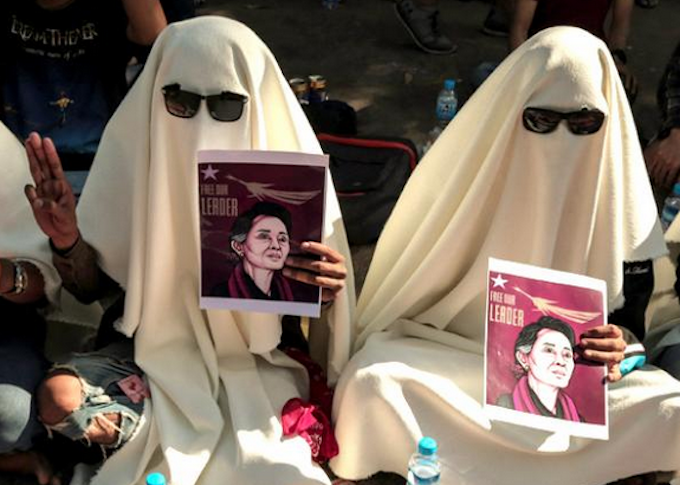
Pacific Media Watch newsdesk
Reporters Without Borders (RSF) has condemned a proposed cyber-security law in Myanmar that would organise online censorship and force social media platforms to share private information about their users when requested by the authorities.
This would violate the confidentiality of journalists’ data and sources, and the public’s right to reliable information, says the Paris-based media freedom watchdog RSF.
The draft law, which has just been leaked, is clearly designed to prevent pro-democracy activists from continuing to organise the demonstrations that have been taking place every day in cities across Myanmar in response to the military coup on February 1.
The State Administration Council – as the new military junta euphemistically calls itself – sent a copy of the proposed law to internet access and online service providers on February 9.
And the junta is expected to make it public on February 15.
The draft law, which RSF has seen, would require online platforms and service providers operating in Myanmar to keep all user data in a place designated by the government for three years.
‘Causing hate, destabilisation’
Article 29 would give the government the right to order an account’s “interception, removal, destruction or cessation” in the event of any content “causing hate or disrupting unity, stabilisation and peace,” any “disinformation,” or any comment going “against any existing law.”
This extremely vague wording would give the government considerable interpretative leeway and would in practice allow it to ban any content it disliked and to prosecute its author.
Article 30, on the other hand, is very specific about the data that online service providers must hand over to the government when requested: the user’s name, IP address, phone number, ID card number and physical address.
Any violation of the law would be punishable by up to three years in prison and a fine of 10 million kyats (6200 euros). Those convicted on more than one count would, of course, serve the corresponding jail terms consecutively.
RSF submission
“The provisions of this cyber-security law pose a clear threat to the right of Myanmar’s citizens to reliable information and to the confidentiality of journalists’ and bloggers’ data,” said Daniel Bastard, the head of RSF Asia-Pacific desk.
“We urge digital actors operating in Myanmar, starting with Facebook, to refuse to comply with this shocking attempt to bring them to heel. This junta has absolutely no democratic legitimacy and it would be highly damaging for platforms to submit too its tyrannical impositions.”
Facebook has nearly 25 million users in Myanmar – 45 percent of the population. Three days after the February 1 coup, the junta suddenly blocked access to Facebook, Twitter and Instagram.
But many of the country’s citizens have been using VPNs (virtual private networks) to circumvent the censorship.
The proposed law’s leak has coincided with social media reports of the arrival of many Chinese technicians tasked with setting up an internet barrier and cybersurveillance system of the kind operating in China, which is an expert in this domain.
Earlier this week, RSF reported the comments of several journalists who have been trying to cover the protests against the military coup, and who said that press freedom has been set back 10 years in the space of 10 days, back to where it was before the start of the democratisation process.
Myanmar is ranked 139th out of 180 countries in RSF’s 2020 World Press Freedom Index.











































